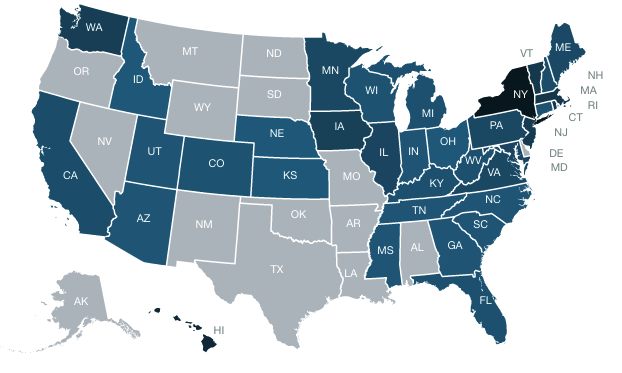
Policy Update
How States are Tackling Plastic Pollution in 2020
2020 has been a landmark year for efforts to curb plastic pollution. Legislators across the country have introduced over 250 bills on plastics. This includes everything from prohibiting polystyrene foodware, to creating a plastic pollution awareness day.
States have also successfully passed legislation this session. Notably, Washington State recently passed both a bill to ban on single-use carryout bags (SB 5323) and a bill requiring minimum recycled content for all beverage containers (HB 5325).
Washington Passes Strong Bag Ban and Beverage Container Bills
Washington’s bag ban sets a strong precedent.
- It applies to all retail stores;
- Places an eight-cent fee on paper and plastic film bags. Both paper bags and film plastic must meet a minimum percentage of recycled content, and film plastics must be of a certain thickness to qualify;
- Includes requirements for compostable bags.
Meanwhile, Washington’s recycled content bill, HB 5325, is the first of its kind to pass in the nation. It increases requirements for post-consumer plastic over time, from 10% in 2022, up to 50% starting in 2030.
Successes In Other States
Outside of Washington, states have continued to take bold action on plastic pollution.
- Legislators from across the Northeast region announced a united front to curb plastic pollution.
- Maine introduced a landmark extended producer responsibility bill to hold brands responsible for the waste they create through fees.
- States like Maryland are also introducing a suite of plastics legislation in a “zero waste package.” Among this package of bills is a ban on single-use carryout bags and a bill to establish Maryland’s first-ever bottle deposit system.
